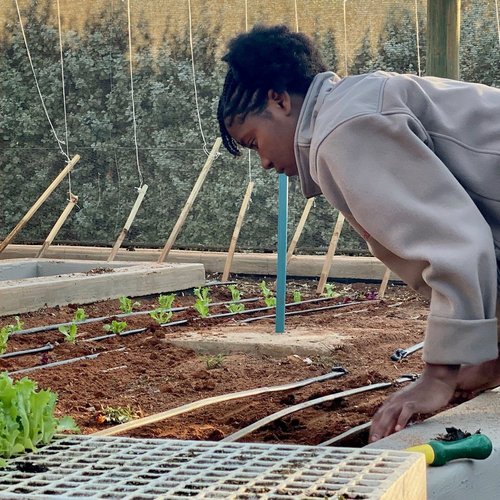animal husbandry
Like our gardening initiatives, animal husbandry will be Foundation-driven and financed, with the objective of future income generation when animal products are sold to the Wolwedans commercial entity. At the moment, however, all meat, milk and cheese products are procured from wholesalers in Windhoek due to lack of local suppliers – think refrigerated transport and related carbon footprint. Not ideal. Developing animal husbandry capacity in the local economy therefore feeds into the sustainability vision of the 5Cs and will form part of The AridEden Project.
Wolwedans plans to introduce cattle (for milk) in early 2022. Complementing the poultry products already available on site, the production of milk, cheese, and eggs (as well as meat processing – see below) should be firmly established by the end of that year.
We also intend to develop meat processing facilities in the local area (our Desert Based Economy) so that farmers who raise livestock / game can sell directly, as opposed to having to sell to processing facilities in and around Windhoek, from whom all lodges in our area eventually procure the final, packaged product. This 'back-and-forth' is highly inefficient, incurs unnecessary costs (with lower returns to the rural farmer), and has a high carbon footprint through related food miles. Once a processing system is in place in the vicinity, meat such as lamb, beef, and game will be procured from local farms for local processing and local sale.
Fortunately, ‘animal husbandry’ already forms part of the national ‘Horticulture Curriculum’, so Wolwedans is in a good position to get going with a training programme. In order for the Desert Academy to obtain accreditation in “Horticulture and Animal Husbandry”, animals will become part of the picture, which ties in with the drive to become more self-sufficient. It's all interconnected!

